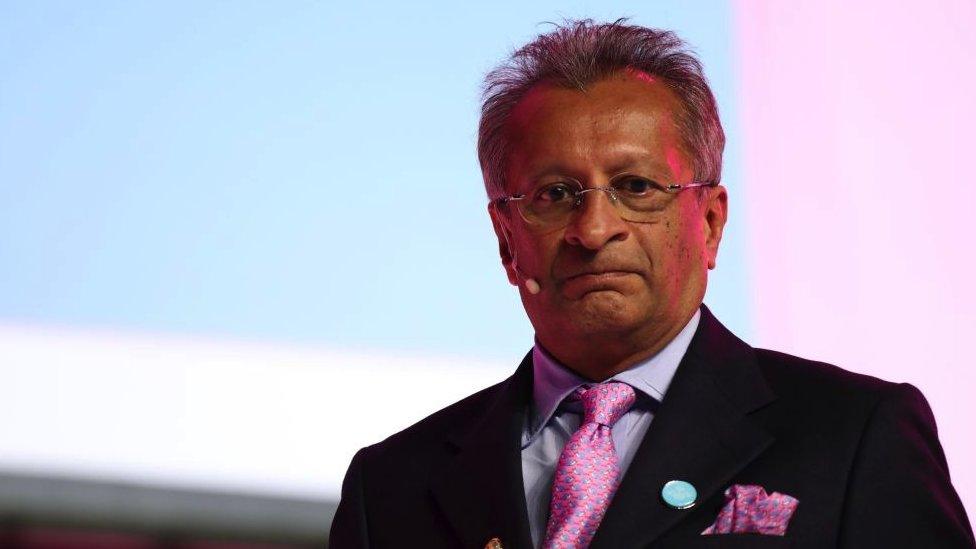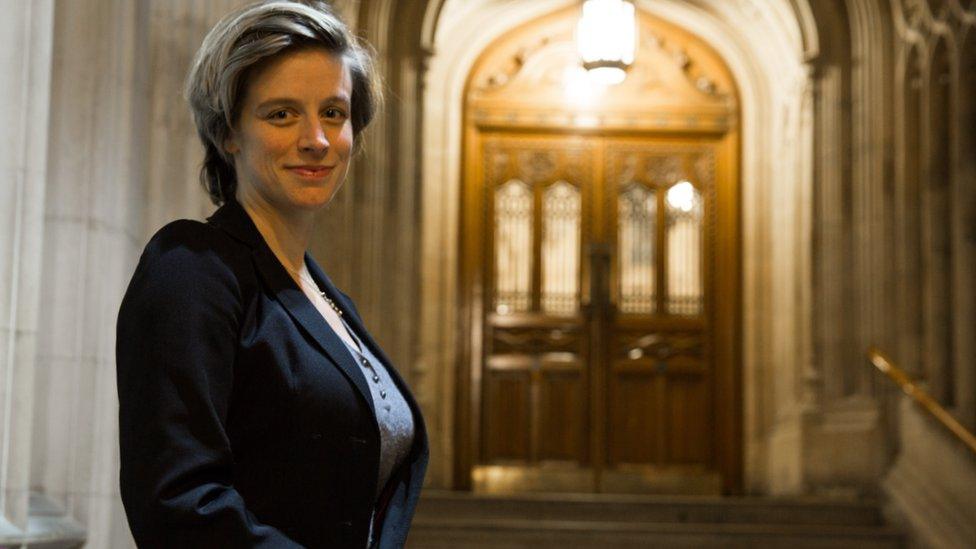Mohamed Amersi loses legal action against ex-MP Charlotte Leslie
- Published

Mr Amersi has donated more than £500,000 to the Conservatives over the past four years
A Conservative donor has lost his legal action against ex-Tory MP Charlotte Leslie, in what a free-speech campaigner called a "landmark" victory.
Mohamed Amersi said Ms Leslie defamed him in letters written to influential people in 2020 and 2021.
Ms Leslie had claimed Mr Amersi was trying to take over the Conservative Middle East Council, which she was then running.
Among those she contacted were MPs Julian Lewis and Crispin Blunt.
She had also written to former MPs Sir David Lidington and Sir Alan Duncan and Sheikh Fawaz, ambassador of Bahrain to the UK.
Mr Justice Nicklin said on Wednesday that Mr Amersi had "failed to prove serious harm" had been inflicted on his reputation by the letters and he struck out the case.
This was the second legal action Mr Amersi had launched against Ms Leslie. He began a data protection action in 2021, then started a defamation claim.
Ms Leslie, MP for Bristol North West from 2010-17, is the former managing director of the Conservative Middle East Council, which promotes links between MPs and the Middle East.

Charlotte Leslie represented Bristol North West until 2017, when she lost her seat to Labour
Mr Justice Nicklin said there were "several aspects of the conduct of the claimant", Mr Amersi, which gave "real cause for concern" as to the purpose of his actions.
He questioned whether Mr Amersi genuinely sought "vindication", which is the aim of such litigation. He also said Mr Amersi had adopted "an exorbitant approach" to the litigation, bringing an unnecessarily complex case.
Ms Leslie said the judgment "spoke for itself" and she was "delighted to have this vindication after two-and-a-half years of legal action against me".
Mr Amersi said he was "bitterly disappointed" and was considering an appeal. He added that he had been "denied justice".
In a statement he said the judge's interpretation of the law "provides effective immunity to those who publish serious falsehoods to small but influential groups of people".
David Davis MP told the House of Commons on Wednesday that the result was a "victory for free speech". He later described it as a "landmark for press freedom and fair comment".
He described the case as a SLAPP : "Strategic Litigation against Public Participation". There has been growing concern about the use of such lawsuits to stifle public debate.
The government has described them as an abuse, used to "harass intimidate and financially exhaust an opponent".
Last year the government held a consultation on changing the law and an update is expected shortly.